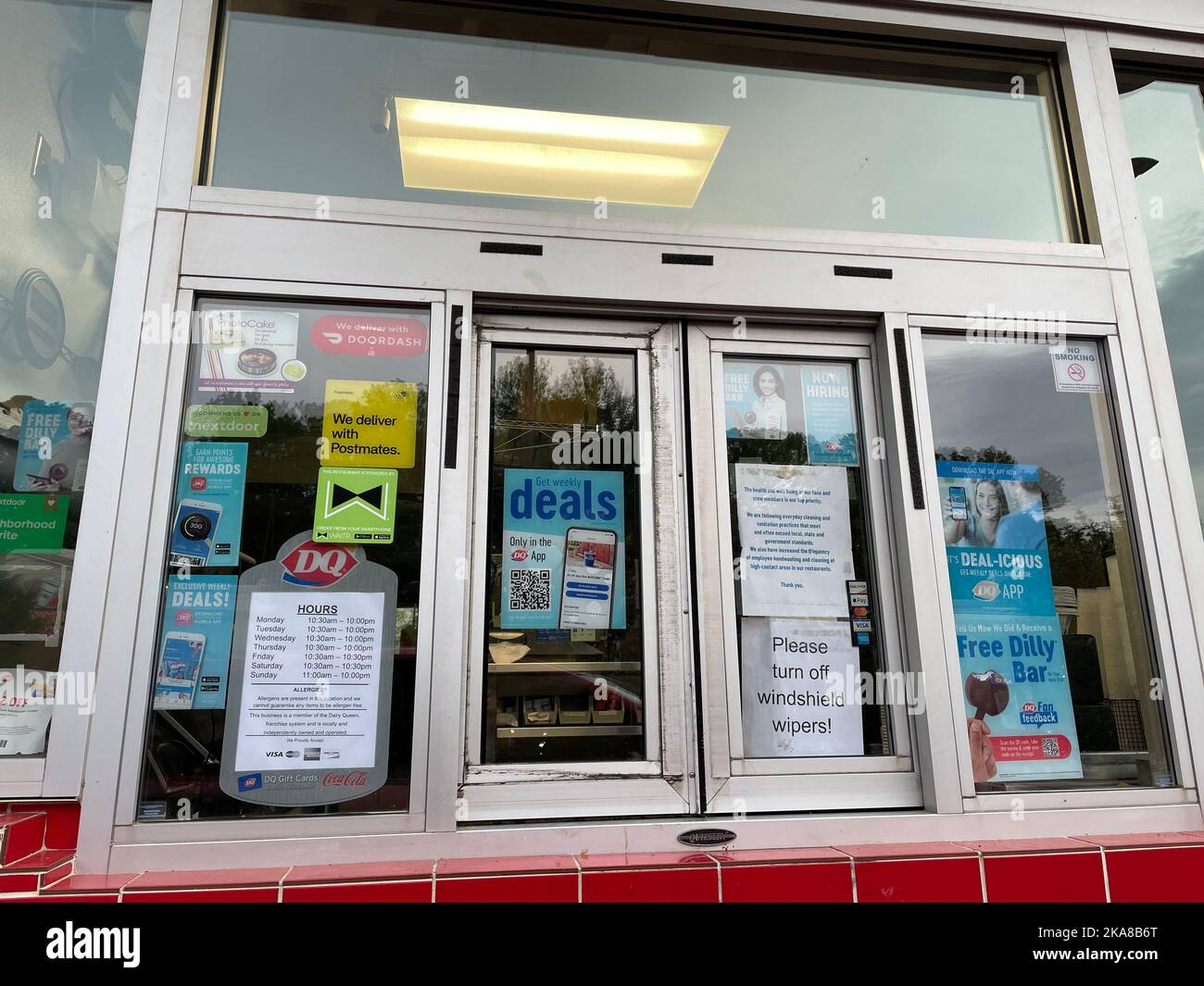Tariff Wars Freeze IPO Market: Analyzing The Economic Impact

Table of Contents
Increased Uncertainty and Investor Hesitation
The unpredictable nature of tariff wars significantly impacts investor confidence and company decisions regarding IPOs. This uncertainty stems from two primary sources: market volatility and the impact on company earnings.
Volatility in Global Markets
Tariff wars create unpredictable market conditions, making it difficult for companies to accurately assess their future valuations. This uncertainty deters both companies considering going public and investors looking for stable returns.
- Increased market volatility directly impacts investor confidence. The fluctuating nature of global markets, driven by trade disputes, makes investors hesitant to commit significant capital to IPOs.
- Companies are less likely to pursue an IPO during periods of heightened uncertainty. The risk of a poorly timed IPO, resulting in undervalued shares, is significantly higher during periods of trade tension.
- Investors are more risk-averse and demand higher returns to compensate for the increased uncertainty. This higher risk premium makes it more challenging for companies to attract investors and secure favorable valuations. The risk-reward equation shifts significantly in times of tariff war uncertainty.
Impact on Company Earnings and Forecasts
Tariffs directly affect a company's input costs and pricing strategies, potentially impacting profit margins and making accurate financial forecasting challenging. This uncertainty makes it harder to justify an IPO valuation.
- Tariffs increase production costs, reducing profitability. Companies facing higher input costs due to tariffs may experience reduced profit margins, making them less attractive to potential investors.
- Price increases to offset tariffs may impact consumer demand. Passing on increased costs to consumers through higher prices can negatively affect sales and revenue projections.
- Inaccurate financial projections make it difficult to attract investors. The uncertainty surrounding future earnings due to tariff wars makes it challenging to provide credible financial forecasts, which are crucial for attracting investors.
Reduced Access to Capital for Businesses
The chilling effect of tariff wars extends beyond investor sentiment, directly impacting businesses' access to crucial capital. This limitation affects both the companies seeking IPOs and the investment firms funding them.
Difficulty in Securing Funding
The diminished IPO market restricts access to crucial capital for businesses seeking expansion or restructuring. This can stifle innovation and economic growth.
- Fewer IPOs mean less capital available for growth-oriented companies. The reduced IPO activity reduces the overall pool of capital available for businesses seeking to expand their operations or undergo restructuring.
- Companies may rely on more expensive alternative funding methods. With limited access to IPOs, companies may resort to alternative funding sources such as private equity or debt financing, which often come with higher costs.
- Reduced access to capital can hinder innovation and job creation. A lack of access to capital can stifle innovation by limiting investment in research and development and hindering the creation of new jobs.
Impact on Private Equity and Venture Capital
The slowdown in IPOs creates a bottleneck in the exit strategy for private equity and venture capital firms, reducing their investment appetite and potentially affecting future funding for startups.
- Private equity and venture capital firms rely on IPOs to realize returns. IPOs are a primary means for these firms to exit investments and realize returns for their investors.
- A frozen IPO market can lead to decreased investment in early-stage companies. The uncertainty surrounding IPO exits may make private equity and venture capital firms more cautious in their investment decisions, potentially reducing funding for startups.
- This can stifle innovation and entrepreneurship. Reduced funding for early-stage companies can hinder innovation and limit the growth of new businesses.
Geopolitical Risks and International Trade Relations
The geopolitical landscape significantly influences investor decisions regarding IPOs. The escalating nature of tariff wars and their impact on global supply chains add to the uncertainty.
Escalation of Trade Conflicts
The unpredictable nature of tariff wars and the potential for further escalation create significant geopolitical risks, making investors even more cautious.
- Uncertain trade policies make long-term investment planning challenging. The constantly shifting landscape of international trade makes it difficult for companies and investors to develop long-term strategies.
- Investors seek safer, less volatile investment opportunities. In times of heightened geopolitical uncertainty, investors tend to seek safer investment options, reducing demand for riskier IPOs.
- Global economic slowdown further exacerbates the risk aversion. A global economic slowdown, often associated with tariff wars, increases risk aversion and further dampens IPO activity.
Shifting Global Supply Chains
Companies are forced to reassess their supply chains, incurring significant costs and delays, adding to the overall uncertainty and making IPOs less attractive.
- Restructuring supply chains is expensive and time-consuming. Companies may need to relocate production facilities or find alternative suppliers, incurring significant costs and delays.
- Disruptions to supply chains impact production and profitability. Supply chain disruptions can negatively impact production levels and profitability, making it more difficult to justify an IPO valuation.
- This adds further uncertainty for potential IPOs. The added complexity and uncertainty associated with supply chain disruptions make it even less appealing for companies to pursue an IPO during periods of tariff wars.
Conclusion
The chilling effect of tariff wars on the IPO market is undeniable. Increased uncertainty, reduced access to capital, and heightened geopolitical risks have all contributed to a significant slowdown in IPO activity, with far-reaching implications for economic growth and innovation. Understanding the intricate relationship between tariff wars and the IPO market is crucial for investors, businesses, and policymakers alike. To navigate this challenging environment, careful analysis of global trade dynamics and proactive adaptation to changing market conditions are essential for mitigating the negative impacts of tariff wars on the IPO market and fostering a more robust and resilient investment climate. Companies considering an IPO should carefully weigh the current risks and seek expert advice before proceeding. Understanding the current climate of global trade and IPOs is vital to future success.

Featured Posts
-
 George Straits Dairy Queen Drive Thru A Fans Unforgettable Encounter
May 14, 2025
George Straits Dairy Queen Drive Thru A Fans Unforgettable Encounter
May 14, 2025 -
 Johan Derksen Onthult Donny Huijsen En Zijn Verkeerde Vrienden
May 14, 2025
Johan Derksen Onthult Donny Huijsen En Zijn Verkeerde Vrienden
May 14, 2025 -
 Sanremo Evento Benefico Con La Fondazione L Uomo E Il Pellicano Ottiene Grande Successo
May 14, 2025
Sanremo Evento Benefico Con La Fondazione L Uomo E Il Pellicano Ottiene Grande Successo
May 14, 2025 -
 Premier League Star A Target For Arsenal Ornsteins Report
May 14, 2025
Premier League Star A Target For Arsenal Ornsteins Report
May 14, 2025 -
 Inspiracija Alkarasa Put Do Uspeha Kao Kod Nadala I Federera
May 14, 2025
Inspiracija Alkarasa Put Do Uspeha Kao Kod Nadala I Federera
May 14, 2025
